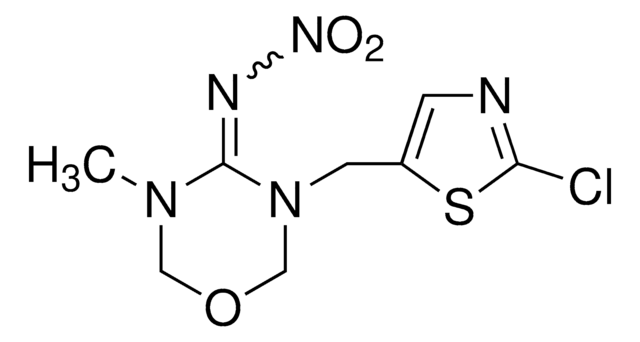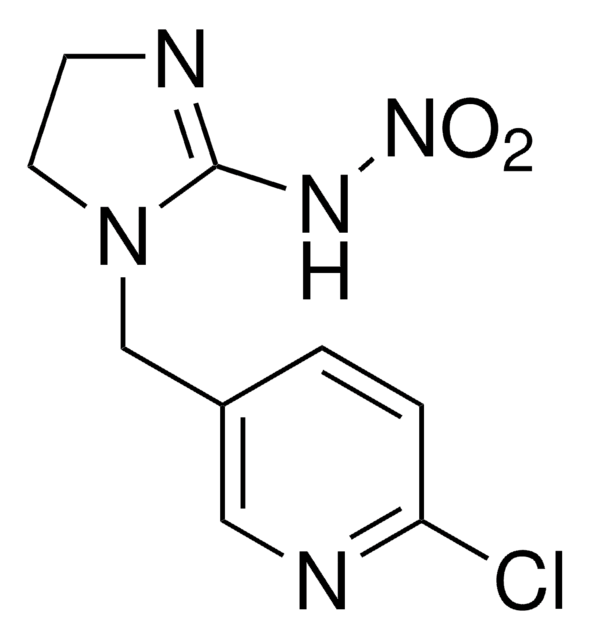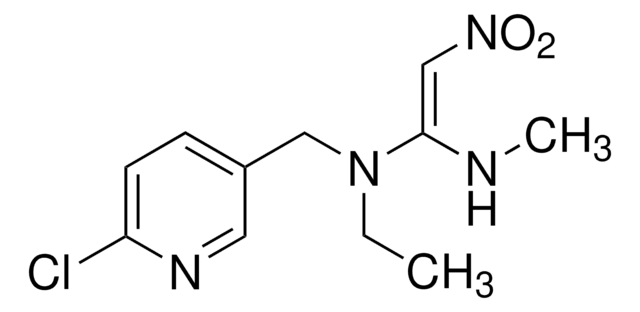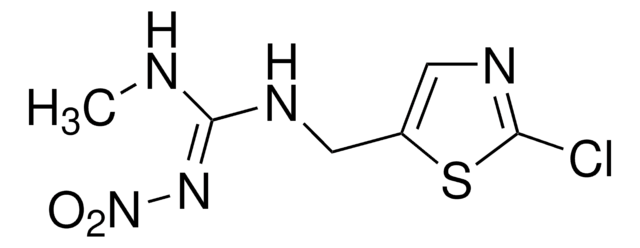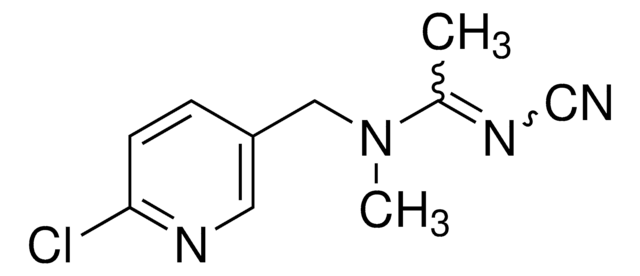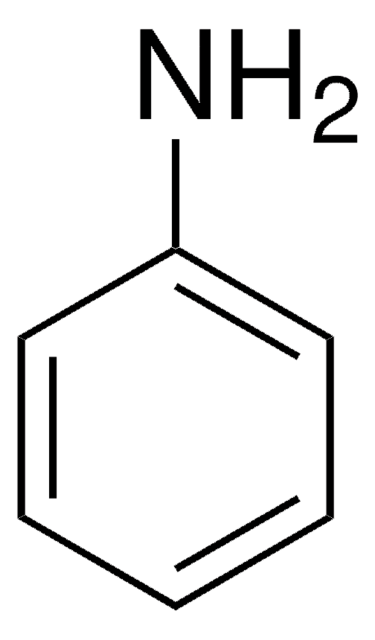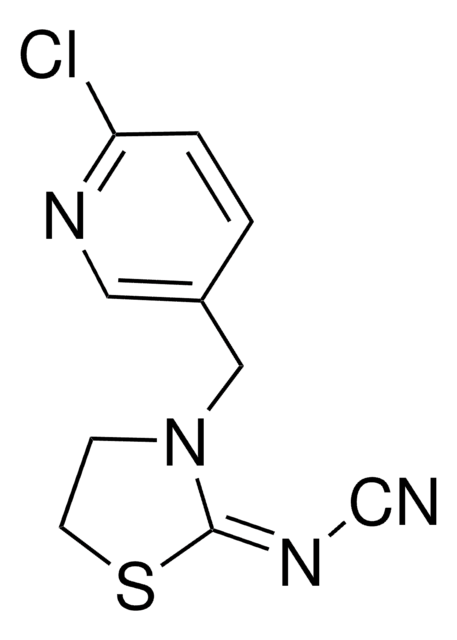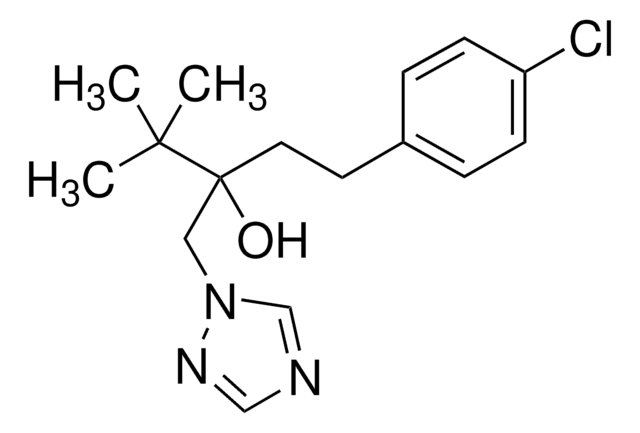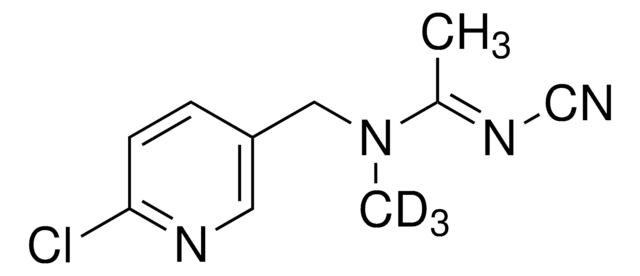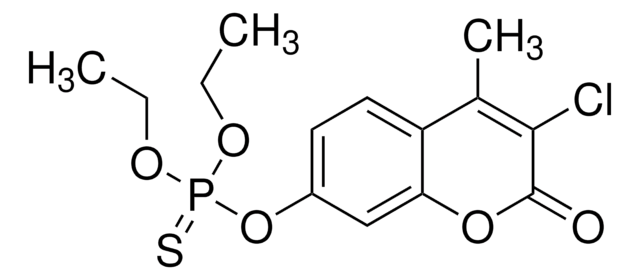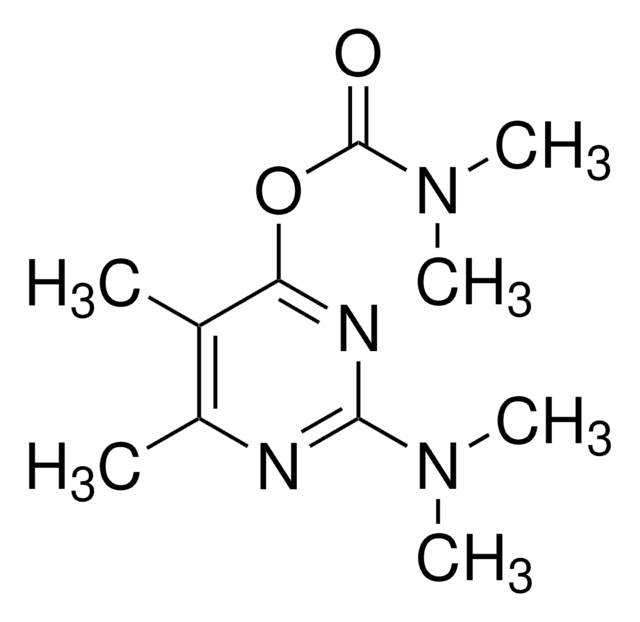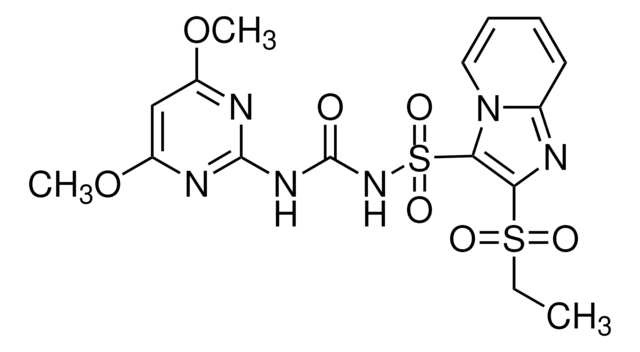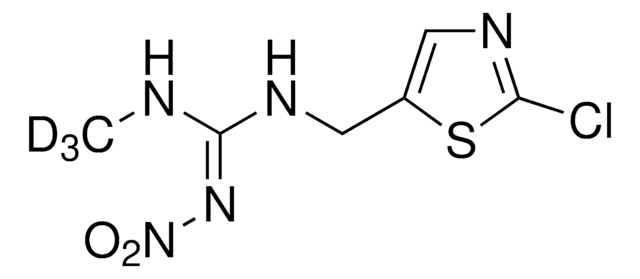37905
Thiacloprid
PESTANAL®, analytical standard
Synonym(s):
[3-(6-Chloro-3-pyridinylmethyl)-2-thiazolidinylidene]cyanamide
About This Item
Recommended Products
grade
analytical standard
Quality Level
product line
PESTANAL®
shelf life
limited shelf life, expiry date on the label
technique(s)
HPLC: suitable
gas chromatography (GC): suitable
application(s)
agriculture
environmental
format
neat
SMILES string
Clc1ccc(CN2CCS\C2=N\C#N)cn1
InChI
1S/C10H9ClN4S/c11-9-2-1-8(5-13-9)6-15-3-4-16-10(15)14-7-12/h1-2,5H,3-4,6H2/b14-10+
InChI key
HOKKPVIRMVDYPB-GXDHUFHOSA-N
Looking for similar products? Visit Product Comparison Guide
General description
Find more information here: Neonicotinoids
Application
Legal Information
Signal Word
Danger
Hazard Statements
Precautionary Statements
Hazard Classifications
Acute Tox. 3 Oral - Acute Tox. 4 Inhalation - Aquatic Acute 1 - Aquatic Chronic 1 - Carc. 2 - Repr. 1B - STOT SE 3
Target Organs
Central nervous system
Storage Class Code
6.1C - Combustible acute toxic Cat.3 / toxic compounds or compounds which causing chronic effects
WGK
WGK 3
Flash Point(F)
Not applicable
Flash Point(C)
Not applicable
Personal Protective Equipment
Choose from one of the most recent versions:
Certificates of Analysis (COA)
Don't see the Right Version?
If you require a particular version, you can look up a specific certificate by the Lot or Batch number.
Already Own This Product?
Find documentation for the products that you have recently purchased in the Document Library.
Customers Also Viewed
Articles
Determination of Neonicotinoids in Honey using a Chromolith RP-18 HPLC column and UV Detection
Protocols
Extraction and Analysis of Neonicotinoid Pesticides from Flower Blossoms Using Supel™ QuE and Ascentis® Express
LC/MS/MS Analysis of Neonicotinoid Pesticides in Dandelion Blossoms on Ascentis® Express C18 after Dispersive SPE (QuEChERS) using Supel™ QuE
LC/MS/MS Analysis of Pesticide Residues in Pistachios on the Ascentis® Express RP-Amide Column after QuEChERS Extraction
Learn more about Neonicotinoids - active substances used in plant protection products to control harmful insects.
Our team of scientists has experience in all areas of research including Life Science, Material Science, Chemical Synthesis, Chromatography, Analytical and many others.
Contact Technical Service